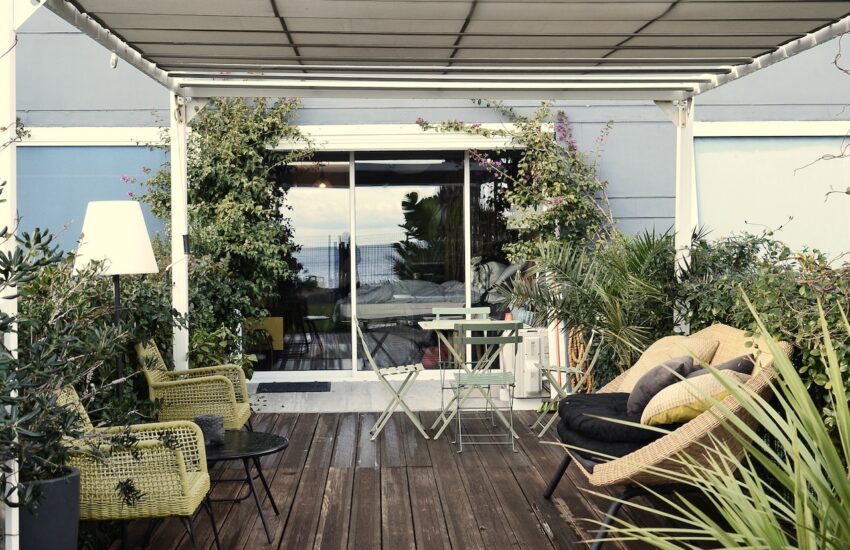Attack the HVAC: Ways to Save On Heating & Cooling Your Home
 You can’t win with the weather for the vast majority of the year. It’s either too hot or too cold, and while most of us are lucky enough to have heating and cooling systems in our homes, the simple fact is it costs a fortune to run. There are, however, many little things you can do to ensure you aren’t overspending. In today’s money-saving guide, we’re going to take a look at all of your options for keeping those HVAC bills down to a bare minimum, while keeping your home at a comfortable temperature. Let’s get started with some of the basics.
You can’t win with the weather for the vast majority of the year. It’s either too hot or too cold, and while most of us are lucky enough to have heating and cooling systems in our homes, the simple fact is it costs a fortune to run. There are, however, many little things you can do to ensure you aren’t overspending. In today’s money-saving guide, we’re going to take a look at all of your options for keeping those HVAC bills down to a bare minimum, while keeping your home at a comfortable temperature. Let’s get started with some of the basics.
The reality for many households all over the country is that the cost of heating and cooling your home tend to be one of your most significant outlays. According to research, around 48% of your home’s energy use is spent on temperature control, which is an astonishing amount of money. Not only is it expensive, but it’s also bad for the environment. Given that almost half your energy bills are from heating and cooling your home, if you could slash your use of HVAC and central heating systems by half, you could also wipe a quarter off your annual utility bill. And how do you go about it? Let’s take a look at some smart ideas.
Routine checks
First of all, it’s vital to perform regular checks on your HVAC system. Ideally, you should be getting a service at least once a year, to ensure your system is working as efficiently as possible. You should also be making checks yourself every once in a while, to make sure there are no buildups of dust and gunk in your system, both of which cause your HVAC unit to work harder.
Think ‘optimum.’
All HVAC systems tend to come with optimum temperature ranges that ensure they are working at maximum efficiency. You will find these in your owner’s manual, and the best way to ensure you aren’t burning money is to stick to these recommended limits as much as possible. Be wary of fluctuating temperatures, too – turning your heating all the way up on unusually cold days, for example. It will put a strain on your HVAC system, and ultimately make it work harder than it should.
Keep an eye on your temperature.
It might sound like a small step, but turning down your heating or cooling by a couple of notches can actually have a remarkable effect on your bills. During winter, for example, if you keep your heat on at a maximum of 15 degrees, it can save you up to 15% of your annual heating bill. Of course, there will be times of the year when you need to turn up the heat or provide more coolant, but try and keep them to a minimum as much as possible.
Program everything
Most HVAC systems come with programmable thermostats these days, and they can be a fantastic way of saving money. Just remember that the less your HVAC system has to work, the more savings you will see on your heating bill. Keep your heating off altogether when you aren’t at home, and also when you are asleep – your bed covers should be more than enough to keep you warm at night. It can be tricky to stay cool during hot nights of course, but a few open windows can maintain a natural draft running through the house.
Stop using your HVAC!
Of course, the less you use your HVAC, the more money you will save. There are plenty of things you should be doing before using your heating. First of all, you will be surprised how warm you can keep yourself by wearing natural fiber clothing such as wool and heavy cotton. A good pair of slippers will keep your tootsies warm, too, and if you have an open fire or wood burner, it can heat up a surprising amount of your home. Think outside of the box, too. As pointed out by heating experts www.HarsterHeating.com/, a ceiling fan can lower your room temperature by about 10 degrees. Not only that, but it only uses around 10% of the energy of a central air con system – which is a significant amount of saving.
Add insulation
There are plenty of ways to insulate your home. You are already likely to have loft insulation, of course, but you might also benefit from having your walls insulated, too. But don’t stop there. Adding an insulation backing to your drapes or blinds can help you keep the cold air out during winter, and it also has a benefit during the hot summer months, too. As direct sunshine hits your windows, it raises the temperature of the room. Using insulation, however, actually blocks the heat and keeps your home in a cooler state.
Seal up your gaps
A lot of people are well aware of the issues of gaps and drafts during the winter months. But it has an impact during the summer, too. During air conditioning season, all those gaps will prevent your HVAC system from keeping your home cool efficiently. So, look around for gaps in your windows, doors and floorboards – and fill them up. Not only will it help you save money on heating, but it will also help your home stay cool in hot weather without having to spend a fortune.
Plant some greenery
Want to make a big difference to your home from the outside? Try planting some trees or large shrubs and use them as a windbreak. During the winter months, the trees will block the cold winds from hitting your home, while in the summer it will provide you with a decent amount of shade and keep things cool.
Eat raw food
Cooking in an oven creates a lot of heat – and causes imbalances to your air conditioning system during the summer, as it has to work harder to control the room temperature. So, avoid indoors cooking and stick to salads and raw food as much as possible,. You’ll save money and feel a lot healthier! Alternatively, buy yourself a barbecue to cook everything on an outside grill, or use a slow cooker or crockpot.
Block your windows
As we discussed earlier, blocking your windows can help you trap heat inside during the winter, and keep your room cool in the summer. But it also prevents the sun from shining through onto your floors. If you have tiles or bricks inside the home, the sun’s rays can heat them up which causes your HVAC system to overwork. Similarly, the cold air and wind can cause your tiles and brickwork to cool down in the winter, meaning your heating needs to work harder. Ultimately, if you want to reduce your energy use, you need to ensure the sun and wind are blocked as much as possible.
Stop using your clothes dryer.
During the summer, most people take advantage of the warm and dry weather to hang up their clothes on a line outside. However, come winter, the majority use their clothes dryer – for obvious reasons.Bear in mind that not only are dryers expensive to use per load, but they also contribute to heating up your home. Again, this can cause your thermostat to ‘read the room’ incorrectly, and if other areas of the home are too cold, you will turn up the heating unnecessarily high. Wherever possible, always hang your clothes, or look at getting a cheap-to-run electrical drying rack.
Perform regular energy audits
Homes change over the years, cracks and gaps can appear, and heating equipment can fail. According to https://www.huffingtonpost.com/, it’s important you keep on top of everything if you want to save money on your HVAC expenditure, so get in the habit of doing some DIY inspections. The DOE’s Office of Energy Efficiency and Renewable Energy has a great guide to doing your own home energy inspection, so take a look and see what you can do.
Think wisely
A lot of these tips can be achieved with little or no cost, but its always sensible to think carefully before upgrading your home to reduce your HVAC costs. Yes, spending a few thousand bucks on a brand new heating system might result in lower heating bills, but how long will it take until you get a return on your investment? So, think carefully before splashing out on any major improvements. In almost every case, your time is better spent making minor lifestyle changes to ensure you’re not overheating or overcooling your home. And once you have developed good habits, perhaps then you can think about making huge energy saving investments such as installing solar panels.
Do you fear your utility bills every month? If so, there’s plenty of ways to save on them, and targeting your HVAC system can result in wiping off up to a quarter of your regular energy costs. Good luck getting your bills down, everyone, and feel free to leave any of your own HVAC tips in the comments section below!

